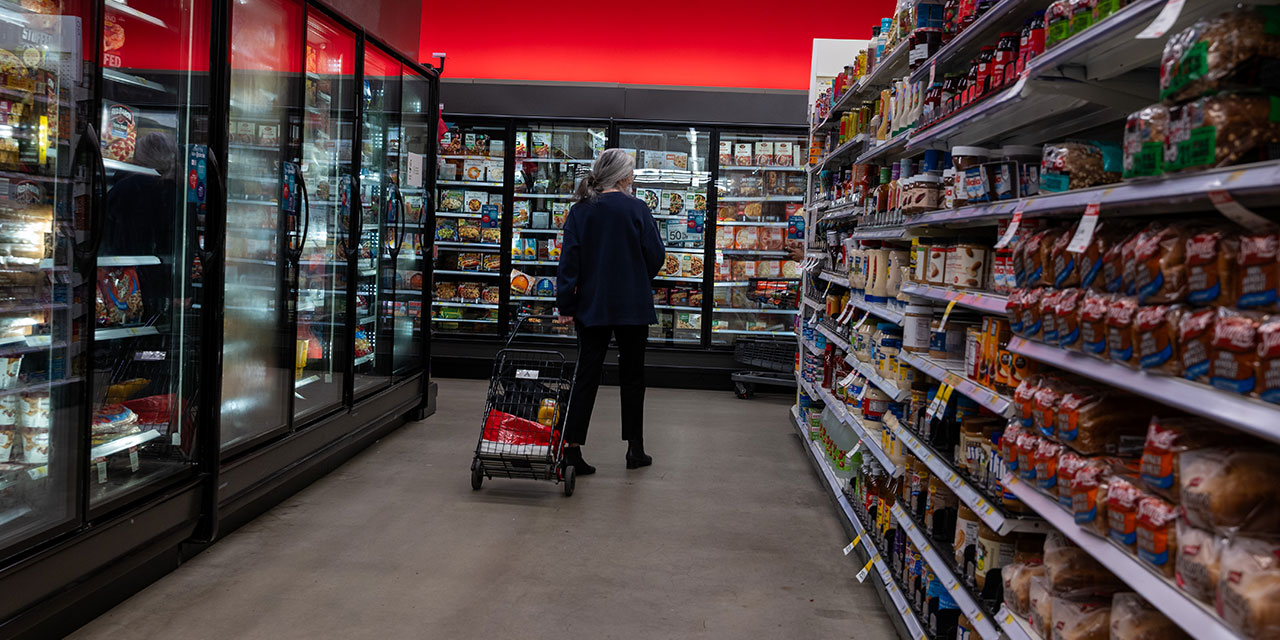
New York socialist mayoral candidate Zohran Mamdani has sparked controversy with several proposals, including his plan to open city-owned grocery stores. Though critics observe that publicly owned stores failed when tried elsewhere, Mamdani argues that the city’s food retailers aren’t readily accessible in some neighborhoods, which he calls “food deserts.” Government-owned stores, freed of the need to make a profit or pay property taxes, would work better, he claims.
Mamdani’s solution, however, ignores the root of the problem, which is that New York City retailers have been closing shops by the hundreds in the last seven years because of growing social unrest and crime sparked by misguided criminal-justice reforms. Moreover, Mamdani’s own criminal-justice agenda, which includes reducing enforcement by the police department, promises to add to retailers’ woes.
Finally, a reason to check your email.
Sign up for our free newsletter today.
It’s instructive to recall the retailing revival that began in the early 1990s and helped to transform the city’s economy, creating tens of thousands of new jobs and making goods easily accessible in many neighborhoods that had previously lacked them. Prior to that recovery, the city had endured a dark age of retailing that began with the widespread urban disorder of the 1970s and continued into the 1980s.
One survey of city shoppers in 1993 found that more than half left the city at least once a month to shop at stores no longer available in the five boroughs. Large swaths of the city, including Harlem, home to 100,000 residents, lacked a local supermarket. Crime was bad enough to sink promising ventures, including U.S. Athletics, a 13-store footwear chain that closed its outlets in the city after suffering some 1,000 shoplifting incidents. In a 1989 survey conducted by Interface, one-fifth of businesses reported having lost sales because of crime.
The key to the early 1990s comeback was the restoration of order, beginning with the declines in crime that characterized the mayoral administration of Rudolph Giuliani and continued into the administration of Michael Bloomberg. Those gains unlocked whole neighborhoods, attracting both local entrepreneurs and national chains that had previously shunned the city. In 1993, the year New York elected Giuliani, there were 234,000 retail jobs. During his eight-year tenure, the city added 38,000 store positions, followed by another 78,000 in Bloomberg’s 12 years—a net gain of nearly 50 percent in retail employment over two decades.
But those gains began to evaporate in 2020, thanks to the economic stresses of severe pandemic lockdowns, rising social disorder following the Black Lives Matter riots, reduced police enforcement, and misguided state bail reforms that went into effect that year. Since then, the city has lost 50,000 retail jobs.
An annual survey of chain stores in New York has documented the closing of hundreds of locations since 2020. Every one of the 13 largest chains in the city has fewer outlets today than it did in 2019. Collectively, these operators have shuttered a shocking 797 stores in New York. Essential retailers like drug stores and supermarkets have been disappearing. Rite Aid, whose top retailing executive told analysts in 2022 that it was almost impossible to stop retail theft in New York City, has closed 73 stores. Walgreens and Duane Reade have shuttered another 128 locations. Executives blamed not only losses from theft but also sharply declining sales, thanks to security efforts like removing all merchandise from shelves and locking it in cases. Key Food, a small supermarket chain, has closed 18 stores. The city also has 45 fewer 7-Eleven outlets. Discount chains Family Dollar and Dollar General have shut 20 stores.
In New York City and nationwide, retailers have struggled to respond to waves of shoplifting prompted by revisions to laws that raised the value of goods a shoplifter must steal before getting charged with a felony, and by bail reforms that result in the quick release of those committing nonviolent crimes. In 2021, to take one example, the NYPD arrested one individual 57 times, including 46 times for shoplifting; he never went to jail. In several instances, cops arrested the man twice in the same day. “This guy comes here every day stealing, every single day,” one Walgreens store manager told the New York Post.
A Manhattan Institute study found that, in the wake of the state’s 2020 bail reforms, shoplifting complaints in the city increased from fewer than 40,000 in 2019 to nearly 65,000 in 2022. Meantime, a study by criminologists determined that two-thirds of those released under the 2020 bail reforms get rearrested within two years. Police commissioner Jessica Tisch has argued that these so-called reforms “have rendered the criminal justice system in New York City a high-speed revolving door for recidivists.”
There’s little evidence that Mamdani’s agenda as mayor would address these problems. He has opposed changes to current bail laws endorsed by the police commissioner. He touts efforts to boost funding for programs that address the “root cause” of crime, including treatment programs for repeat offenders. He has argued for refocusing the NYPD’s efforts on “serious” crime enforcement, which by nature means deemphasizing so-called nonviolent offenses like shoplifting—the same thinking that set off the explosion of retail theft.
Retail experts have weighed in on the question of whether government-owned food stores could possibly serve New Yorkers more efficiently than private outlets. The more relevant question: Could such public stores survive the shoplifting tsunami that has already devastated their private counterparts?
Photo by Spencer Platt/Getty Images
City Journal is a publication of the Manhattan Institute for Policy Research (MI), a leading free-market think tank. Are you interested in supporting the magazine? As a 501(c)(3) nonprofit, donations in support of MI and City Journal are fully tax-deductible as provided by law (EIN #13-2912529).
Source link

















